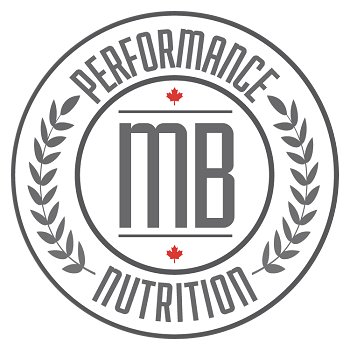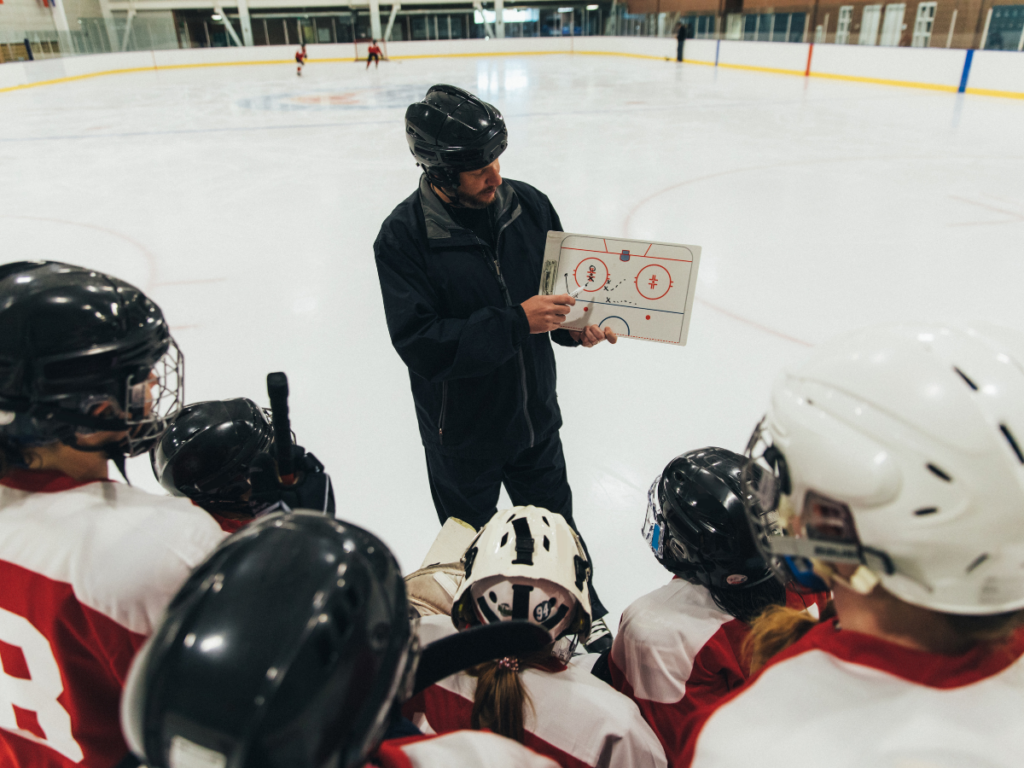Last updated on November 7th, 2024
Discover the top 5 nutrition mistakes teen hockey players make and learn how to fuel for peak performance, endurance, and recovery on the ice.
Teen hockey players are used to working hard on the ice to improve their skills. However, many unknowingly hold themselves back by making simple nutrition mistakes. The right nutrition can make a huge difference in energy, endurance, recovery, and overall performance. Yet, with busy schedules and countless food options, it’s easy for teen athletes and their parents to overlook key nutrition strategies.
In this post, we’ll cover five common nutrition mistakes that teen hockey players make and provide simple tips to help avoid them for better performance on and off the ice.
Mistake #1: Not Eating Enough Carbohydrates
Carbohydrates are often misunderstood, but for teen hockey players, they’re essential for fueling performance. Carbs are the body’s primary energy source, especially for high-intensity sports like hockey. Unfortunately, many athletes don’t eat enough carbs, which can lead to low energy and poor endurance during games.
Consequences: When hockey players don’t get enough carbs, they’re likely to feel fatigued faster, react slower on the ice, and struggle to maintain endurance. Low-carb intake can also affect focus, making it harder to stay sharp throughout the game.
Solution: Aim to include carbs in every meal and snack. For a general guideline, carbs should make up around 45-65% of an athlete’s daily calories. Great sources include whole grains, fruits, pasta, rice, and starchy vegetables like potatoes. Try adding pre-game snacks like bananas or oatmeal with fruit to keep energy levels high before hitting the ice.
Mistake #2: Relying Too Much on Processed Foods
Busy schedules make processed foods tempting, but these options often lack the nutrients that support performance and recovery. Many processed foods are high in sugars and unhealthy fats, which can lead to quick energy spikes followed by crashes, leaving athletes feeling sluggish and drained.
Consequences: Processed foods don’t provide the steady energy release needed for long games and intense practices. Relying on them also means athletes miss out on the vitamins, minerals, and fibre found in whole foods, all of which are essential for muscle repair, immune support, and overall health.
Solution: Prepare nutrient-dense snacks that are easy to pack and eat on the go. Try options like yogurt with berries, apple slices with peanut butter, or homemade energy balls with oats and dried fruit. For teens with hectic schedules, meal prepping on weekends can help ensure they have healthier choices available throughout the week.
Mistake #3: Skipping Breakfast
Many teen athletes skip breakfast due to lack of time in the morning or because they aren’t hungry when they wake up. However, breakfast is a crucial meal that sets up energy levels for the day and provides essential nutrients for focus and stamina.
Consequences: Skipping breakfast can lead to low blood sugar levels, making athletes feel sluggish, unfocused, and less prepared for the day’s activities. Over time, missing breakfast can also slow metabolism and impact recovery after workouts.
Solution: Encourage quick, balanced breakfast options that combine carbs and protein. Smoothies with fruit and Greek yogurt, oatmeal topped with berries, or a scrambled egg wrap are all great choices that can be made quickly. For those who struggle with appetite in the morning, even a small snack like a banana or a piece of toast with almond butter can make a difference.
Mistake #4: Inadequate Hydration
Staying hydrated is essential for optimal performance, but many teen athletes don’t drink enough water, especially outside of practices and games. Dehydration can affect energy levels and cognitive function and even increase the risk of injury during intense activity.
Consequences: Dehydration leads to muscle cramps, fatigue, and slower reaction times. It can also raise the body’s core temperature, increasing the risk of overheating during games or workouts. Even mild dehydration (as little as a 2% loss in body water) can significantly affect performance.
Solution: Aim for consistent hydration throughout the day. For teens, drinking about half their body weight in ounces of water daily is a good target, with additional hydration needed before, during, and after games or practices. For longer practices or games, consider drinks that provide electrolytes (like sodium and potassium) to help replenish what’s lost through sweat. Water-rich foods, such as watermelon, oranges, and cucumbers, can also help increase hydration.
Mistake #5: Relying Too Much on Supplements
Many teen athletes turn to supplements as a shortcut for nutrition, influenced by social media or teammates. However, supplements should only complement a diet, not replace whole foods, and they aren’t necessary for most young athletes who are eating well.
Consequences: Relying on supplements can lead to an unbalanced diet, potential health risks, and unnecessary expenses. Additionally, supplements are not strictly regulated, meaning some products may not be as safe or effective as they claim.
Solution: Emphasize a “food-first” approach. Encourage athletes to focus on whole foods rich in protein (like lean meats, eggs, and beans), vitamins (like fruits and vegetables), and minerals (like leafy greens and nuts). Supplements may be useful in specific situations, such as under medical guidance for a deficiency, but consulting a nutrition professional is recommended before starting any new supplements.
Take away
Proper nutrition can be a game-changer for teen hockey players, helping them perform their best, recover faster, and stay healthy throughout the season. By avoiding these common nutrition mistakes—getting enough carbs, choosing whole foods over processed snacks, eating breakfast, staying hydrated, and prioritizing whole foods over supplements—athletes can fuel their bodies for success.
Small changes add up to big results on the ice. When it comes to nutrition, consistency and balance are key. Remember, the right nutrition plan can be one of the most powerful tools in an athlete’s training program, helping them unlock their full potential.



